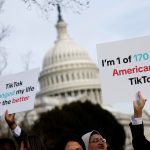The abrupt termination of Meta’s fact-checking program, a decade-long initiative involving independent journalists and organizations worldwide, has sent shockwaves through the media landscape. The decision, announced with little to no warning to the affected parties, marks a significant shift in Meta’s content moderation strategy, raising concerns about the spread of misinformation and the future of online fact-checking. Many fact-checkers, some of whom had recently signed contract extensions, expressed shock and dismay at the sudden news, delivered via a press release or, in some cases, with less than an hour’s notice. This abrupt termination not only disrupts established workflows but also jeopardizes the financial stability of newsrooms and nonprofits that had come to rely on the program for income. Meta’s justification for the move, framed as a response to concerns about “censorship,” has been met with skepticism and outright rejection by many of the fact-checkers themselves.
Meta’s decision to dismantle its fact-checking program affects a vast network of organizations, spanning from established American newsrooms like USA Today and Reuters Fact Check to nonprofits like Politifact and international organizations working in countries as diverse as Australia and Zambia. While contracts with U.S.-based organizations are slated to end in March, international partners are expected to continue until the end of the year. This phased approach creates a period of uncertainty for international fact-checkers, who must now grapple with the impending loss of a crucial resource. The financial implications of this decision are significant, especially for smaller newsrooms and nonprofits. Meta claims to have invested $100 million in the program since 2016, extending its reach to over 115 countries. The sudden withdrawal of this funding stream poses a serious challenge to the sustainability of fact-checking initiatives globally, potentially leaving a void in the fight against misinformation.
The rationale behind Meta’s decision, as articulated by new global policy chief Joel Kaplan, centers on the notion that the company’s content moderation policies, developed partly in response to societal and political pressure, have become overly complex and tantamount to censorship. This argument has been met with strong pushback from the fact-checking community, who emphasize that their role has always been to provide context and debunk false claims, not to remove content. Fact-checkers point out that Facebook’s own rules explicitly restrict content moderation and removal to the company itself. Their function, they maintain, has been to add informational layers to disputed content, empowering users to make informed judgments, not to censor or suppress information. This distinction has been a cornerstone of the program, and its dismissal by Meta has fueled concerns about the company’s commitment to combating misinformation.
The timing of this decision, coinciding with Joel Kaplan’s appointment as global policy chief, raises questions about the influence of political considerations on Meta’s strategic direction. Kaplan, a former senior advisor to President George W. Bush and a long-time Republican lobbyist, replaced Nick Clegg, signaling a potential shift in the company’s approach to content moderation. This change comes amidst a broader series of moves interpreted as attempts to appease the incoming Trump administration, including relocating the content moderation team to Texas and softening rules around hate speech. These actions, coupled with Zuckerberg’s appointment of prominent Trump supporter Dana White to the board of directors, suggest a concerted effort to align Meta’s policies with the political landscape.
Former President Trump’s response to Meta’s announcement further fuels speculation about the political motivations behind the decision. Trump’s praise for the move, coupled with his unfounded claims about Zuckerberg’s alleged interference in past elections, adds another layer of complexity to the situation. The implication that Meta’s decision is a direct response to Trump’s threats creates a perception of political influence, raising concerns about the company’s independence and commitment to objective content moderation. This perception is further compounded by the ongoing legal challenges Meta faces, including an upcoming Federal Trade Commission hearing that could potentially lead to the breakup of the company. These legal battles add significant pressure to Meta’s decision-making process and could be influencing its strategic choices.
Meta’s shift in content moderation strategy also sets the stage for potential conflict with European regulators, who have taken a more stringent approach to online content governance. The European Union’s Digital Services Act, which imposes stricter requirements on platforms to remove illegal content, stands in stark contrast to Meta’s apparent move towards less stringent moderation. This divergence in approach could lead to clashes between Meta and European authorities, similar to the ongoing investigations into Elon Musk’s X (formerly Twitter) over content moderation practices. Zuckerberg’s public statements criticizing European regulations as “institutionalizing censorship” further highlight the potential for conflict. This transatlantic tension underscores the complex and often conflicting regulatory landscape facing global tech companies, forced to navigate differing legal and political pressures across various jurisdictions. Meta’s apparent prioritization of aligning with the U.S. political climate could put it at odds with international regulatory bodies, creating a challenging balancing act for the company.



